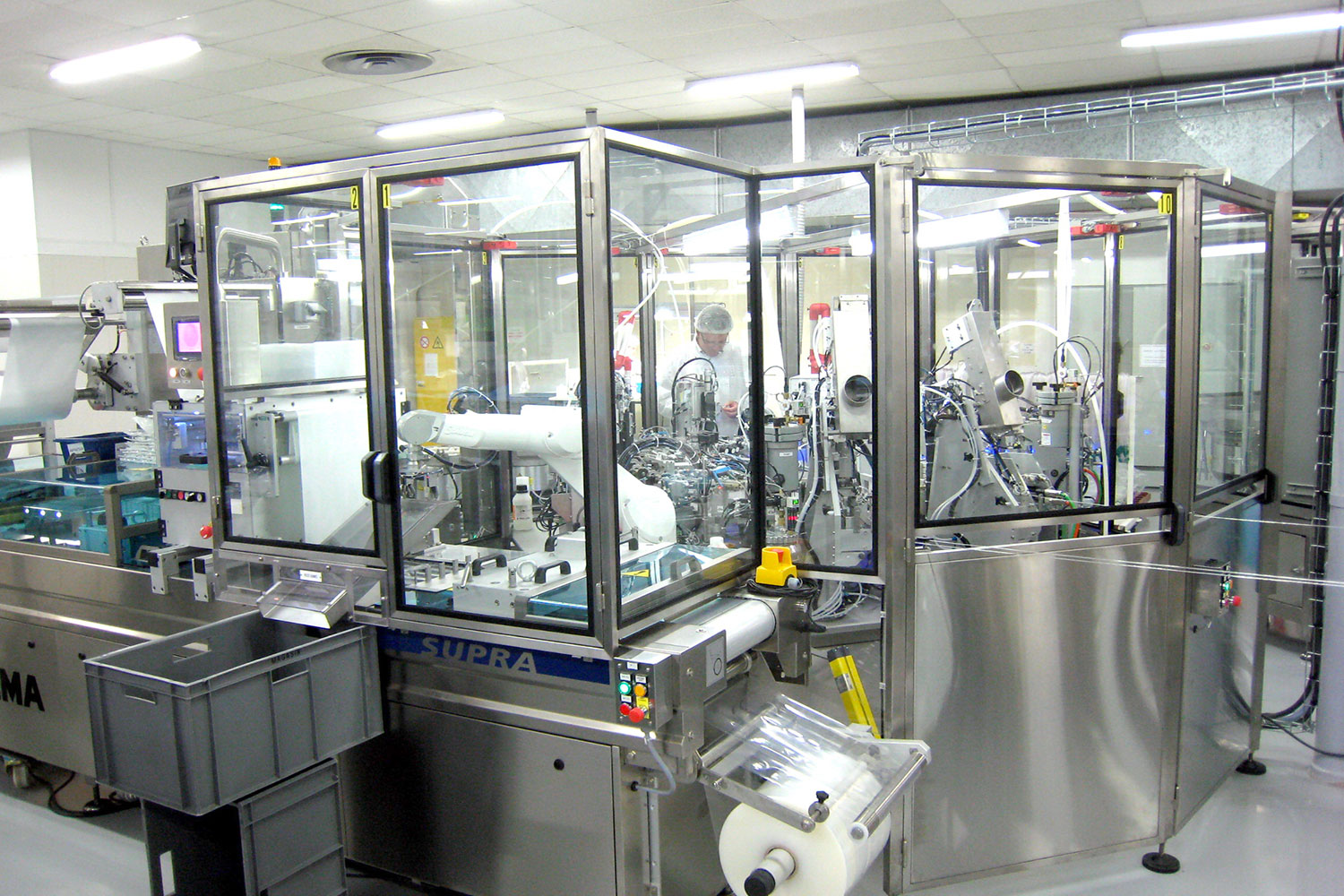In today’s highly competitive industrial landscape, businesses continually seek ways to optimize their manufacturing processes, reduce costs, and improve product quality. Special Purpose Machinery (SPM) stands out as a powerful solution to achieve these goals. Designed to perform specific tasks within production lines, SPM offers numerous advantages over general-purpose machinery. This blog explores the key benefits of investing in Special Purpose Machinery and how it can transform manufacturing operations.
What is Special Purpose Machinery?
Special Purpose Machinery refers to custom-engineered machines designed to perform dedicated functions within manufacturing processes. Unlike general-purpose machines, SPM is built to meet the unique requirements of specific tasks, providing high levels of precision, efficiency, and customization. Industries such as automotive, pharmaceuticals, electronics, and packaging widely use SPM to enhance their production capabilities.
Key Benefits of Special Purpose Machinery
1. Increased Productivity
One of the most significant benefits of Special Purpose Machinery is its ability to increase productivity. SPM is designed to execute tasks quickly and accurately, reducing cycle times and allowing for higher output rates. By automating repetitive and labor-intensive processes, SPM enables human workers to focus on more complex and value-added activities, further boosting overall productivity. This increase in efficiency helps manufacturers meet higher demand without compromising on quality.
2. Enhanced Precision and Quality
Special Purpose Machinery is engineered for precision, ensuring consistent quality across production batches. This level of accuracy is particularly crucial in industries like pharmaceuticals and electronics, where even minor deviations can lead to significant quality issues. SPM maintains tight tolerances and minimizes errors, helping manufacturers achieve superior product quality. Consistent quality reduces the need for rework and enhances customer satisfaction, ultimately leading to a stronger market reputation.
3. Cost Reduction
While the initial investment in Special Purpose Machinery can be substantial, the long-term cost savings are considerable. By automating tasks and improving efficiency, SPM reduces labor costs and minimizes material waste. Additionally, the enhanced precision of these machines reduces the need for rework and scrap, further lowering operational expenses. Over time, the return on investment (ROI) for SPM can be substantial, making it a cost-effective solution for many manufacturers.
4. Improved Safety
Safety is a paramount concern in manufacturing environments. Special Purpose Machinery enhances workplace safety by automating hazardous tasks that would otherwise pose risks to human workers. For instance, tasks involving heavy lifting, exposure to harmful substances, or high temperatures can be performed by SPM, reducing the likelihood of accidents and injuries. This not only protects workers but also minimizes downtime associated with workplace incidents, ensuring continuous production.
5. Customization and Flexibility
Special Purpose Machinery is highly customizable, allowing manufacturers to tailor equipment to their specific needs. This flexibility is invaluable in today’s dynamic market, where production requirements can change rapidly. SPM can be designed to accommodate different product specifications, enabling quick adjustments and reducing the time required to switch between production runs. This adaptability helps manufacturers respond swiftly to market demands and stay ahead of the competition.
6. Enhanced Operational Efficiency
SPM is designed to integrate seamlessly into existing production lines, enhancing overall operational efficiency. These machines can be equipped with advanced features such as sensors, real-time monitoring, and automated control systems. This integration allows for better coordination between different stages of the manufacturing process, reducing bottlenecks and ensuring smooth production flow. Enhanced operational efficiency translates to higher output, lower operational costs, and improved profitability.
7. Scalability
As businesses grow, their production needs evolve. Special Purpose Machinery offers scalability, allowing manufacturers to expand their production capabilities without significant overhauls. SPM can be designed to handle increased volumes or more complex tasks, supporting business growth and enabling manufacturers to meet rising demand. This scalability ensures that investments in SPM remain valuable even as production requirements change.
8. Competitive Advantage
Investing in Special Purpose Machinery provides a competitive advantage by enabling manufacturers to produce high-quality products more efficiently and at lower costs. This advantage is crucial in industries with tight margins and fierce competition. By leveraging the benefits of SPM, businesses can differentiate themselves in the market, attract more customers, and secure a larger market share.
Real-World Applications of Special Purpose Machinery
Automotive Industry
In the automotive industry, SPM is used for tasks such as assembling components, welding, painting, and inspection. These machines ensure high precision and consistency, which are critical for maintaining the safety and reliability of vehicles. Automated assembly lines equipped with SPM can produce vehicles more quickly and with fewer defects, enhancing overall manufacturing efficiency.
Pharmaceutical Industry
The pharmaceutical industry relies on SPM for tasks like tablet pressing, capsule filling, labeling, and packaging. These machines ensure that pharmaceutical products are produced under stringent quality standards, with precise dosages and proper packaging. By automating these processes, SPM helps pharmaceutical companies meet regulatory requirements and maintain high production volumes.
Electronics Industry
In electronics manufacturing, SPM is used for tasks such as PCB assembly, soldering, and testing. The precision and speed of SPM are essential for producing complex electronic components that meet exacting standards. Automated testing equipment, for instance, can quickly identify defective parts, ensuring that only high-quality products reach the market.
Packaging Industry
The packaging industry benefits from SPM through automated filling, sealing, labeling, and palletizing systems. These machines enhance packaging speed and accuracy, reducing material waste and ensuring that products are packaged efficiently. SPM in packaging also allows for greater flexibility in handling different product types and packaging formats.
The Future of Special Purpose Machinery
The future of Special Purpose Machinery is promising, with ongoing advancements poised to further enhance manufacturing efficiency. Here are some trends to watch:
Integration with Industry 4.0
As manufacturing continues to evolve towards Industry 4.0, the integration of SPM with advanced technologies such as the Internet of Things (IoT), artificial intelligence (AI), and big data analytics will become more prevalent. These integrations will enable real-time monitoring, predictive maintenance, and data-driven decision-making, further improving the efficiency and reliability of SPM.
Additive Manufacturing
Additive manufacturing, or 3D printing, is set to revolutionize the production of SPM components. This technology allows for the rapid prototyping and production of complex parts, reducing lead times and costs. As additive manufacturing becomes more advanced, it will enable the creation of highly customized and efficient SPM designs.
Enhanced Human-Machine Collaboration
The future will see increased collaboration between humans and machines. Advanced human-machine interfaces (HMIs), including touchscreens, voice commands, and augmented reality (AR), will make it easier for operators to interact with SPM. These interfaces will provide intuitive controls and real-time feedback, improving productivity and reducing the risk of errors.
Conclusion
Investing in Special Purpose Machinery offers numerous benefits that can transform manufacturing operations. From increased productivity and enhanced precision to reduced costs and improved safety, SPM provides a competitive edge in today’s dynamic market. As technology continues to advance, the capabilities of SPM will only grow, providing manufacturers with even more powerful tools to meet the demands of modern production. By embracing these innovations, businesses can ensure they remain efficient, competitive, and ready for the future.




